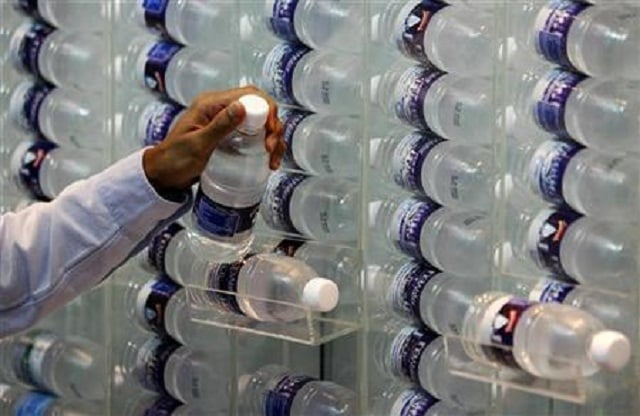
Some of the plastic bottles are made from Bisphenol A (BPA), an unsafe chemical which is widely used in the production of some household items as well. BPA is a controversial chemical which is believed to interfere with sex hormones.
Environment hazard: 20,000 plastic bottles bottles being bought each second
"Certain chemicals found in [some] plastic bottles can have effects on every system in our bodies,’ Dr Marilyn Glenville warned Good Housekeeping.
"They can affect ovulation, and increase our risk of hormonally driven problems like PCOS, endometriosis and breast cancer, among other things."
The National Health Service (NHS) has confirmed that BPA can seep into beverages, but further research needs to be conducted in order to determine whether the chemical can affect humans.
According to NHS, "The science is not yet completely clear on how BPA may affect humans. BPA may mimic hormones and interfere with the endocrine system of glands, which release hormones around the body.
"Those calling for a ban suggest that it may be a factor in a rising numbers of human illnesses, such as breast cancer, heart disease and genital birth defects."
Bottled water: Court seeks comments of food authority
Treadmill Reviews conducted a laboratory test where they examined water bottles used by athletes for a week. The highest number of bacteria found amounted to 900,000 colony forming units per square cm on average, which is more than the number present on a typical toilet seat.
Moreover, 60 percent of the germs discovered on water bottles have the potential to make people fall sick. Therefore, it is advisable to use BPA-free water bottles, and best to use bottles produced from glass or stainless steel.
This article originally appeared on The Independent
1731325890-0/trump-(24)1731325890-0-405x300.webp)


1720507435-0/BeFunky-collage-(26)1720507435-0-165x106.webp)

1730959638-0/trump-(19)1730959638-0-270x192.webp)
1731836051-0/BeFunk_§_]__-(3)1731836051-0.jpg)

1731830002-0/BeFunk_§_]__-(1)1731830002-0.jpg)
1731829827-0/Untitled-design-(15)1731829827-0-270x192.webp)







COMMENTS (1)
Comments are moderated and generally will be posted if they are on-topic and not abusive.
For more information, please see our Comments FAQ